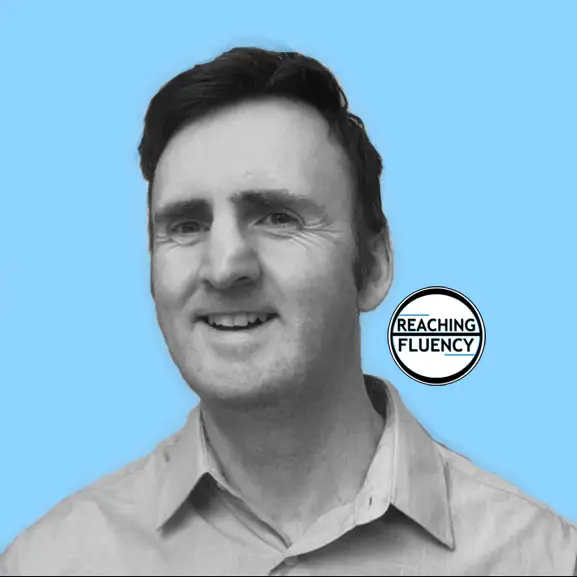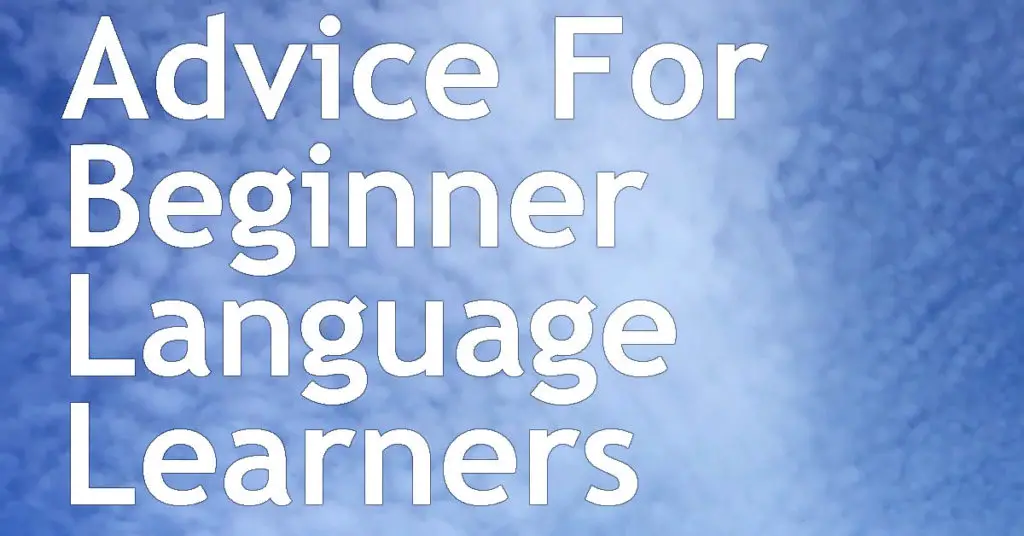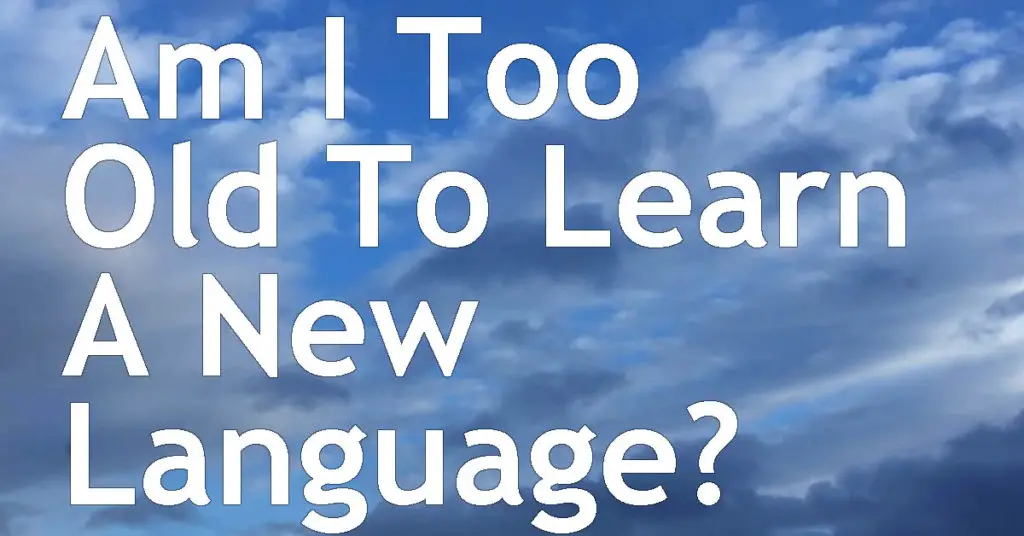When you look at language immersion it seems like you are just watching TV shows, listening to podcasts and reading books and somehow the language magically makes sense after a while.
This is kind of true, so how exactly does immersion work? …basically you are giving your brain a lot of information and it subconsciously decodes everything and slowly makes sense of things, but I will go through a lot of the different things that are actually happening in more detail below.
Page Contents
Immersion Is Actually Using The Language
One of the main reasons that immersion works is because you are actually using the language in its true form. It’s not some abstract theory or isolated examples that are out of context, you are experiencing the language in a way that it should be used.
You will also be surrounding yourself with the language and forcing your brain to confront it and as it cannot avoid it, it has to try and process the information you are giving it.
Immersion Is Input
The main mechanics behind immersion is that it is a form of input. The logic is pretty straight forward, your brain is empty and you simply just have to fill it up with the language.
However, immersion is actually effective as it showing you how the language should look and sound.
Basically language is made up of individual words, but it is also much more than this. If you just opened a dictionary and went through the list of words …this would be input, but it would be very ineffective as nothing is in context. You would still learn some new words, but you wouldn’t be able to actually understand the language.
Immersion works differently as it gives you words and it gives you them in context and in the proper structure. Everything is complete and it all makes sense, so this is a much more effective form of input that you brain can process.
(You can read more about – What Are The Benefits Of Language Learning Through Immersion?)
Immersion Gives You Repeated Exposure To The Language
Immersion also works by giving you repeated exposed to the same words. To remember anything, you need to be comfortable with it, which really means you need to have seen it a couple of times so you get used to it. After a few exposures you will start to recognise the words, and then actually be able to recall them yourself.
When you are listening to the language you are going to hear the same types of words appear over and over again and you will start to notice them and quickly become comfortable with them.
Every time you immerse you will be seeing the words again and basically revising them and making them stronger in your mind and more engrained into your long term memory.
The beautiful thing is that everything is in context, which helps make it more understandable, it’s really not the same as looking at a list of words over and over again. You will be given hundreds, actually probably thousands of examples of the words being used and working together, which only helps your understanding and memory of the word grow.
Immersion Is A Subconscious Process
Pretty much all of the immersion process is subconscious. Of course you are consciously going to be trying to make sense of things, but the real action is going on behind the scenes and it’s out of your control.
Everything you see and hear will be taken in by your ears and eyes and filtered through your brain and processed. Understanding language is hardwired into us; we are built to process this type of communication and we will try and make sense of it on a subconscious level.
Weird example …but let’s say you took a new born baby and sent them to another country (without the parents) …so I guess they get adopted …anyway, they would learn the language of the country you sent them to.
We all start as a blank slate with no language and we just need to have any language imputed when we are young. If you look at kids raised in multi language environments they just take it all in and can speak any of the languages they are being exposed to.
The human brain is incredible and immersion learning just plays to its strengths and natural abilities around this.
Your Brain Builds Links And Starts Recognising Patterns
The subconscious process is really complicated, but basically your brain will start trying to take the information it has been given and make sense of it.
It will try and recognise patterns and will also try and build links between different bits of information. It will even try and use your native language as a reference point to try and give itself some clarity.
This is why it is really important to give yourself as much input as possible. The more data your brain has, the easier it will be able to see the patterns and build the links.
If you imagine your new language is like a jigsaw puzzle, you want to give your brain all of the 1000 pieces that are available, rather than just a small handful of them.
The 1000 is going to be a big messy pile at first, but once you start sorting it out it will become more organised. You might get all the edge pieces together, then maybe some blocks of colour and eventually you can start to get a feel for what should go where. It won’t be perfect, but it’s a lot clearer than the big pile at the start.
This is exactly what is going on in your head with the language. You may think just focusing on one small part is more sensible, but you will never get the full picture doing this.
The subconscious is really powerful, so just give it as much of the language and it will work it out.
You Need Comprehensible Input
While I have said that you just need to give your brain the language through lots of immersion …there is one other part to this that is very important …it needs to be comprehensible.
Basically you need to understand what you are inputting. This can sound like you need to be fluent to even start learning, which of course makes no sense, and luckily isn’t true.
You just need to roughly understand what is going on, which may just be as simple as understanding a few key words, or the general topic.
So long as there is some sort of understanding, your brain can start analysing things and trying to link everything together and it will also try and make sense of anything that is unclear.
It is kind of like navigating with a map, you need at least one reference point to help you work out where you are, and of course the more you have, the easier it becomes, which is also true for the language. The more you can understand the more you will be able to make sense of the parts you do not.
This is exactly why learning vocabulary and even looking at the grammar all helps with your immersion. Consciously studying like this helps to speed up the subconscious process, you are simply giving the brain more reference points and more understanding so it can decode things a little easier.
Immersion Is A Slow Process
The big downside to immersion is that it is an extremely slow process. This is because languages are huge and complex and it just takes time to make sense of it all in your head.
It also takes a long time to actually input all the data and you also need a lot of it. You really need hundreds of different examples of all the words and sentence structures for your brain to be able to start recognising patterns and understanding everything.
This is totally different to a more traditional classroom style learning, where they will teach you a few sentences today and you can walk away thinking you know some of the language.
The problem is that you only know that one phrase and even if you understand the individual parts of it, you probably can’t use these in different ways.
When you immerse you will start seeing the singular words in all sorts of different situations and you will have a better understanding of how and when these word can be used. Your understanding will be much deeper.
The problem is that you cannot really feel all this happening as its subconscious. If I teach you a phrase today, you can walk away knowing it. You are aware that you have learned this phrase, with immersion things are not so clear.
You might not explicitly realise that you understand how a word works; your understanding sort of slowly gets stronger as time goes on and you can’t really explain what you know or not, you just kind slowly start to understand things more and more as time goes on.
(You can read more about – How Long Does It Take To Become Fluent In A Language Through Immersion?)
Your Native Language Will Try And Get In The Way
As I have already discussed, immersion happens at a subconscious level, but annoyingly, your conscious brain will try and get in the way of this process.
You will usually see this happening by your conscious brain trying to prove to yourself that you know something unconsciously, by translating it into English (or your whatever you native language is).
You kind of tell yourself. “If I can explain this in English, then I understand it” and while this is true, it’s also not efficient and is just an unnecessary step that can slow you down.
Understanding two languages and then being able to translate between them is actually two different things and the translating part is extremely difficult.
If you actually take a step back you will notice that you don’t think in language, you can understand things without it …you just use language to express things as you are very comfortable with using it.
This means you can understand a 2nd language on a deep subconscious level, but you might not have developed the skills to translate this over in your native language yet. This may lead you to think that you don’t understand the 2nd language, but you actually do.
This whole process of trying to translate things into English only gets in the way and the sooner you can try and stop this unnecessary the step, the better.
(You can read more about – How Do You Know If You Are Making Progress In Your Language With Immersion?)
Conclusion
Hopefully now you have a clearer understanding of how language immersion works. It may seem straight forward and like nothing is happening, but a lot will be going on deep in your brain at a subconscious level.
It’s a strange technique as you do not really have any control over how your brain processes things; all you can do is keep feeding it as much information as possible, as well as try to make it as comprehensible as possible and your brain will do the rest.
Just trust the system. If you put enough time and effort in, you will see results
(You can read more about – Is Immersion The Best Way To Learn A Language?)

Ian is the owner and main writer of Reaching Fluency. He is a native English speaker, French speaker and Japanese learner and general lover of language learning.
You can read more about him on his Authors Page or link with him on social media
日常英会話メール
ニュースレターを購読してください! - 参加無料
メールリストに参加すると、少なくとも週に 1 回 (場合によってはそれ以上) メールが届きます
メールは毎日の英会話で、読んで勉強することができます。
メールは短いですが役に立ちます。いつでも停止できます



Pingback: Is Learning A Language Through Immersion Effective? – Reaching Fluency
Pingback: How Long Does It Take To Become Fluent In A Language Through Immersion? – Reaching Fluency
Pingback: How Do You Know If You Are Making Progress In Your Language With Immersion? – Reaching Fluency